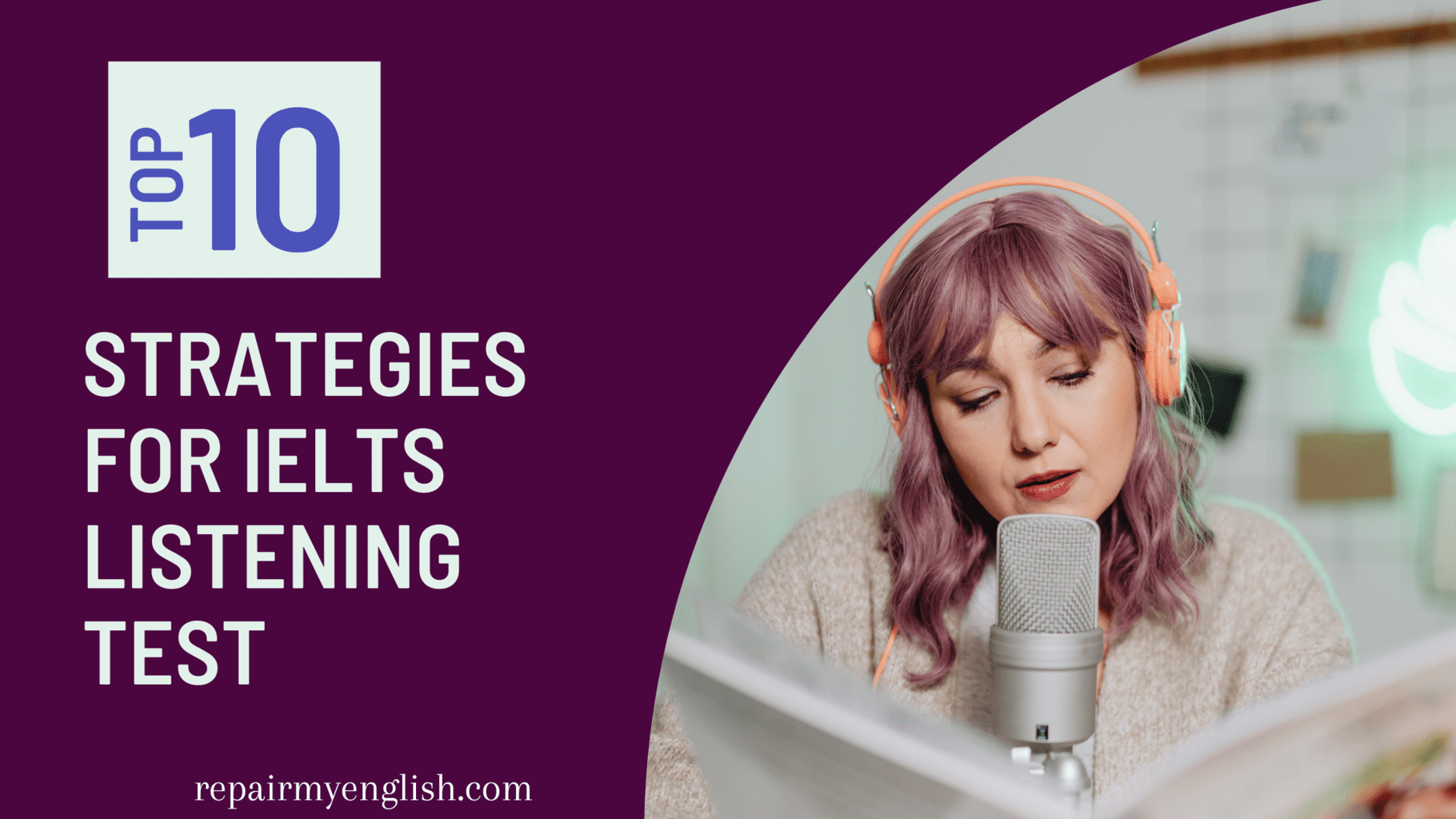Many candidates have different requirements for different band score. Some students require a 6 +, 7+ band score, whereas others need an 8+ band score. If you have the same requirement, this blog will provide you the best IELTS Listening Tips and Tricks that will help you to get a high band score:

These 10 IELTS Listening tips and techniques will provide you with a road-map to get a high band score in the IELTS exam:
1) Read the instructions carefully:
The first IELTS listening practice tip and trick is to read the instructions carefully. The instructions are mentioned at the beginning of every section. If the instruction includes write no more than two words, and you have written three words; instead, the answer will be marked wrong.
Besides, write what they have asked you. To explain, if the question appears like:
You have to pay_____ $.
And wrote 100 $.
The answer will be incorrect as you have mentioned $, which was already given in the question.
The correct answer is 100.
But, if the question statement says:
You have to pay ____.
The incorrect answer is: 100
The correct answer is: 100 $
2) Practice listening:

Many students do 3 to 4 practice test a day to achieve a high band score in IELTS, and still, they couldn’t score well in the final exam. So, the most essential IELTS listening improvement tip for such students is to practice only 1 test a day and spend the rest of the time in watching and listening to other resources in English.
The resources include:
- English Movies
- English Seasons
- English News Channels
- Ted talks
- English Podcast
Choose 1 or 2 resources as per your interest and don’t try to use all resources for learning in one go.
Also, practice the pronunciation of English alphabets and numbers; generally, there are 2 or 3 questions where words are spelt out in the listening test, and numbers are read out, so you need to learn how native speakers of English pronounce different letters and words.
3) Practice listening, reading and writing together:
Another, IELTS listening exam tip is to practice listening, reading and writing together. The IELTS practice test will certainly help you in this area as in every section of the test; you need to write and listen simultaneously. So, if you have practiced for two months in advance, you will undoubtedly improve this skill, and it will boost your score in the IELTS exam.
Furthermore, be careful while writing the answer. Speakers in the test generally speak one option in the question but suddenly correct themselves. So, don’t write any answer immediately that you hear first. Instead, listen to the complete question that will help you identify the correct answer.
4) Move on if you miss an answer:
The next, IELTS listening module tip includes keeping your focus intact if you missed any question. Many students try to recall the same question, thereby skips the following few questions, and this drastically decreases their score. In case you missed any answer, don’t panic, move to the next question.
Additionally, at the end of the listening test, you will get 10 minutes to transfer your answers from the question booklet to the answer sheet. Utilize this time to review those questions that you missed while listening. Don’t leave any question blank as there is no negative marking in the IELTS exam.
Guessing the answers can help you in multiple-choice questions and can give you 2 to 3 extra marks if you don’t leave it blank. As you won’t be penalized for incorrect answers so, don’t leave any answer blank. It is the IELTS listening secret tip which no one tells you.
5) Identify paraphrasing:

Another essential point, in the IELTS listening test, is that the recording can be different from what you read on the question booklet. That means you should not try to listen to the exact words but try to listen to the synonyms and lines that are paraphrased. Identifying paraphrasing is a crucial IELTS listening test preparation tip that will help you to achieve even 8+ band score.
6) Underline keywords:
While reading the question statement, underline important keywords as nouns, adjectives and verbs. When you highlight the words, it becomes easy for you to listen to the recording and identify the answers. Underlining the keywords is an IELTS listening easy tip, especially for section 3 and 4 that will help to concentrate on the question because these two sections are a little tricky.
7) Be careful about spelling and grammar:
Further, try to be careful about spelling and grammar. Your answers will be marked incorrect for spelling and grammar. That’s why you need to double-check your answers at the end of the test. You can check your grammar by reviewing the question statement. When you read the sentence, it will help you to guess whether the fill-up will take verb, noun or an adjective. Being careful about spelling and grammar is a vital IELTS listening tip and strategy.
8) Practice different question types:
The next point is to prepare yourself for different question types because the IELTS listening test consists of various question types. But, if you haven’t practiced different question types, it would be difficult for you to get a high band score.
For most students, multiple-choice and map questions are tough, and this indicates that it requires a lot of practice. However, only practice is not sufficient; you also need to learn various strategies to crack these types of questions. By learning different techniques for different IELTS listening question types will undoubtedly help you to boost your score in the IELTS exam.
9) Use upper case letters:
Also, most students get confused about whether to write in upper case letter or lower case letter while transferring the answers from question booklet to the answer sheet. Though, on the official website of the British Council, it is mentioned that you can write your answers in lower case or capital letters.
However, it is recommended that you should write all your answers in capital letters because it reduces your confusion whether the first letter needs capitalization or not.
10) Transfer your answers to the answer sheet carefully:
Lastly, be careful while transferring your answers from the question booklet to the answer sheet. Out of all the IELTS listening tips, transferring answers from the question booklet is one of the most important strategies which are often overlooked by students. If you put the answers in the wrong place, your answer will be incorrect. So, don’t haste while transferring answers to the answer sheet.
To conclude: This blog has covered all IELTS listening important tips & essential information that will help to achieve your desired band score in IELTS.
Learn IELTS Reading Tips & Tricks

